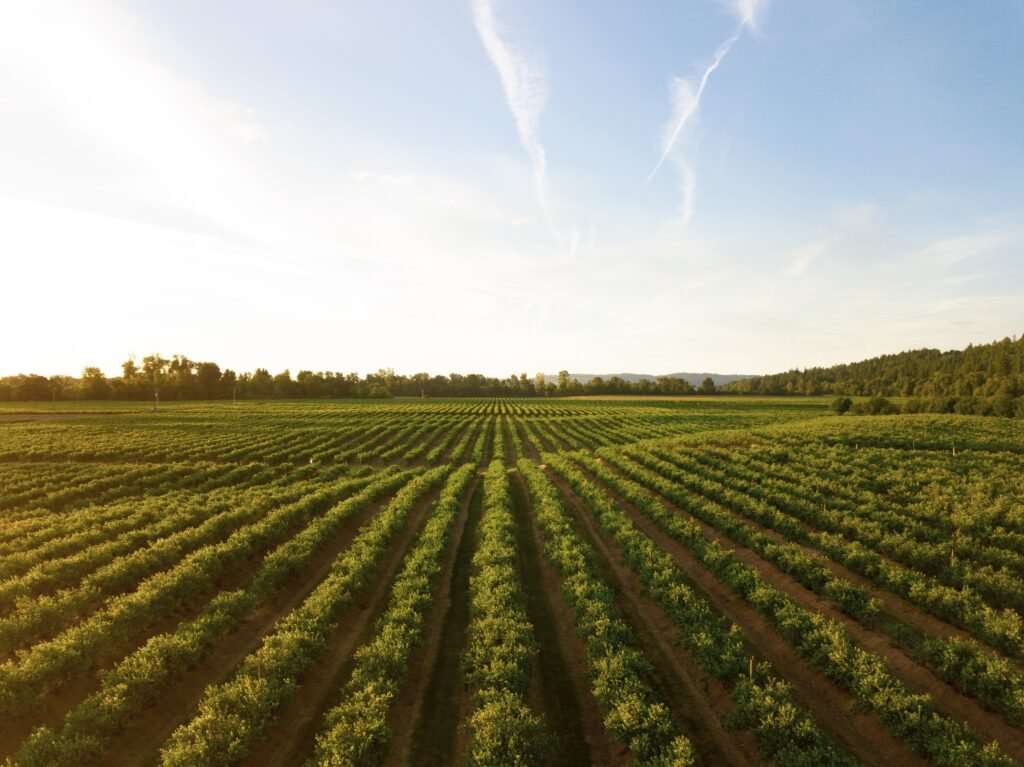
Agrigenomics studies genes and their interaction with the environment in agriculture. It can help us understand how plants respond to environmental changes, including climate change. Agrigenomics can assist with crops that are more resilient to climate change. For example, we can use agrigenomics to learn about drought-resistant crops. Agrigenomics can also help us develop crops that require less water or tolerate higher temperatures.
Below find a detailed explanation of the waysAgrigenomics helps in addressing climate change:
1- Understanding how plants respond to changes in their environment
Agrigenomics helps us understand how genes affect the way plants grow and develop. This knowledge can help us breed crops more resilient to environmental stressors like drought or heat.
Additionally, agrigenomics can help us develop crops that are more efficient in their use of water and other resources. This can reduce the need for irrigation, a significant contributor to water scarcity.
2- Develop crops that are more resilient to climate change
One way to breed more resilient crops to climate change is to use agrigenomics to identify genes that confer resistance to specific stressors, such as drought or heat. Once these genes are identified, they can be introduced into crops through conventional breeding or genetic engineering.
Another way to breed climate-resilient crops is to use genomic selection. This type of plant breeding uses DNA information to select plants with the desired traits. This approach can be used to select multiple features, including those that confer resistance to climate change.
3- Develop crops that require less water
Agrigenomics can help us develop more efficient crops in their water use. For example, agrigenomics can identify genes that affect water use efficiency. Once these genes are identified, they can be introduced into crops through conventional breeding or genetic engineering.
4- Develop crops that can tolerate higher temperatures
Agrigenomics can help us develop crops that can handle higher temperatures. For example, we can use agrigenomics to know genes confer heat tolerance. Once these genes are identified, they can be introduced into crops through conventional breeding or genetic engineering.
Agrigenomics applications
Some of the applications of agrigenomics include:
- Crop improvement – Agrigenomics can be used to develop crops more resilient to environmental stressors, such as drought or heat. Additionally, agrigenomics can help us create crops that are more efficient in their use of water and other resources.
- Pest and disease control – Agrigenomics can be used to develop crops resistant to specific pests or diseases. For example, we can use agrigenomics to grow disease-resistant crops.
- Conservation – Agrigenomics can help us conserve crop diversity by identifying genes that confer resistance to environmental stressors. This information can be used to develop climate-resilient crops. Additionally, agrigenomics can help us grow crops that require less water or tolerate higher temperatures.
- Waste management – Agrigenomics can be used to develop more efficient crops using resources such as water and fertilizer. This can help reduce the amount of agricultural waste.
Conclusion
Agrigenomics is a powerful tool that can help us breed more resilient crops to climate change. By understanding how plants respond to environmental changes, you can develop crops that require less water or tolerate higher temperatures. This knowledge can help us ensure food security in a changing climate.
